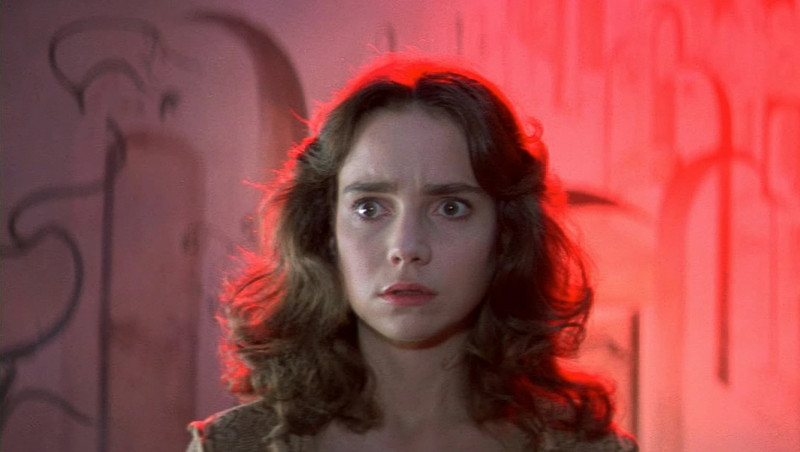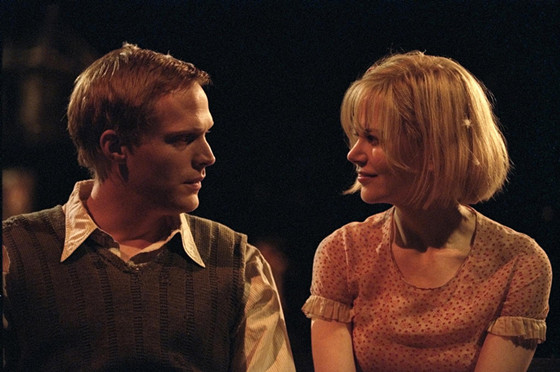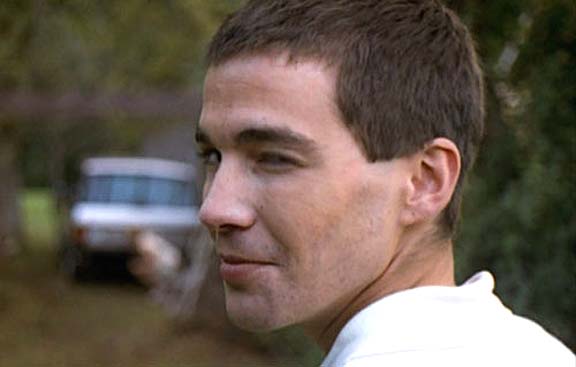5. Suspiria

Argento is a bit of an acquired taste – one cultivated by exposure to movies based on psychosexual murder mysteries published in the 50s and 60s. Referred to as Giallo, in reference to the yellow paperbacks, these movies are stylistically and thematically intertwined.
Showing interest in such a niche cinematic movement is bound to evoke respect from the film student. Think of Argento as the floral shirt in your otherwise monochromatic wardrobe.
Suspiria serves as the perfect appetizer to tease your senses with glimpses of the best that Giallo has to offer. In watching the movie, it’s important to know that the acting and dialogue are secondary to Argento’s use of colors, sounds and the mystical.
The intent here is to provide you with a sensory overload, aurally hemmed by an insanity-inducing progressive rock soundtrack. In doing so, you’ll be swept away by a sea of crimson, as the film assaults your visual cortex with color and contrast.
Not as serious or morbid as the others on this list, Suspiria should be the coffee used to clear your olfactory after indulgences in the nuanced scents of other directors and cinematic movements.
6. Dogville

With Lars von Trier, we expand our burgeoning cinematic boundaries into more contemporary filmmakers. Dogville represents a triumph in experimental cinema, and Lars Von Trier its rightful champion. Usually known for sexually explicit motifs, Dogville taps into the stylistic stickler inherent in Lars Von Trier.
In theory alone, Dogville is a unique undertaking. Details of plot and set-design will be kept to a minimum, given that it plays such a pivotal role in the experience of the viewer.
Philosophical connotations of the plot, however, delves deep into the subaqueous waters of the human psyche. Alluding to classics like Lord of the Flies and Paradise Lost, Dogville merges plot, concept and execution in a mosaic that arrests and captivates.
Each scene is wrought with an eerie silence that pervades the entire film, further adding to its stylistic separation. Nicole Kidman acts as the lynchpin to Trier’s manifold, with a performance that absolutely enthralls.
7. Funny Games

Welcome to the morbid world of Michael Haneke, where long shots rule, fourth walls are regularly broken, and animals are occasionally killed. Prepare yourself for unconventional progression of narrative and a juggernaut of introspection.
Funny Games is disturbing. It will unsettle you, and you won’t know why. It is the monster that you see in your periphery, which always disappears when you attempt to bring it into focus.
Haneke’s Hollywood remake is as gripping as his German original, and possibly even more so given the effect of language. It is chilling and confusing. And in its chaos, it captures the essence of humanity.
Funny Games isn’t a movie about philosophy as much as it is a philosophical movie. Rather than nutshell his message in a simple form, Haneke plays with Matryoshka dolls and Ouroboros snakes in communicating to the audience.
It’s difficult to give you a light-hearted takeaway from such a grim movie, so I’ll just go with this. “If you saw it happen. Then that makes it real”. When in doubt, go for the cryptic. An adage that can be applied for any interchange with the cinema student.
8. Victoria

Victoria, watched under the right circumstances, should consolidate your new found passion for cinema. It is a technical marvel, in that the entire movie was created with one shot. The city was used as a set, and the masterful camera work was able to bring it to life and immerse the audience.
The set was the city of Berlin, the lighting was provided by the night sky, and the actors utilized improvisation and ad-lib dialogue to capture fleeting reality in an artificial world.
As a film, Victoria progresses a little slowly in the first hour and then takes on a breakneck pace. It is dreamy and sad, insightful and philosophical. It captures the human condition through a recognizable lens, and we’re taken along for the ride. And what a ride it is. In all this, it cannot be understated how difficult such an endeavor would have been.
That’s your go-to. Emphasise the technical achievement of Victoria, and this should display, once and for all, the authenticity of your passion. On the flipside, it might actually spark a legitimate interest in you, with regards to cinema and its nuances.